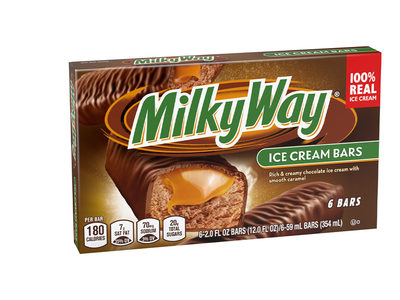CHICAGO — It’s that time of year when flavor houses forecast what will trend in the months to come. The predictions are based on customer requests and internal innovation. McCormick & Co., Hunt Valley, Md., for example, identified tamarind as the flavor of 2024, while Embassy Ingredients, Brampton, Ont., said it will be the year of calamansi. Can they both be correct?
Most likely both will have their spot in the limelight, sort of, as they tend to be non-characterizing flavors. Each provides subtle aromas and tastes that give foods an added dimension without the consumer being able to identify what it is if it isn’t called out. They provide twists on the familiar and are being used in recognizable applications to spark curiosity.
Calamansi has citrus notes and may be used in place of lemon in everyday foods and beverages. Las Vegas’ Aqua serves Tasmanian Ocean Trout with a drizzle of calamansi butter.
Tamarind provides savory foods — every-thing from burgers to grilled vegetables — with an acidic, tart, sour-like flavor profile that resembles the fermented notes associated with kimchi and pickled foods. It’s often used in condiments. Thattu, a Chicago-based restaurant focused on the cuisine of Kerala, India, offers a fried yucca ball appetizer with an onion tamarind chutney.
“Innovation is happening across all categories of flavor,” said Doug Resh, director-commercial marketing, T. Hasegawa USA, Cerritos, Calif. “The evolving culinary landscape, influenced by shifting trends during the pandemic, has increased consumer desires for excitement and experiential elements in a range of food and beverage offerings.
“The industry is carefully balancing exotic flavors with familiar comfort foods that US consumers already love. As consumers expand their palates to include new flavor combinations and unexpected ingredients, a ripple effect of innovation is evident in both packaged foods and restaurant foodservice in the form of fusion foods.”
Formulating for fusion
The opposite of non-characterizing is bold and defining. Such flavors are trending, but in atypical applications. Think about a spicy dill pickle bagel and pizza-flavored string cheese, for example. Such concepts appeal to the growing number of consumers eating mini meals throughout the day. They crave satisfying “mealtime” flavors in foods that are now snacks.
“We are expecting most of the flavor innovations and product launches to take place in the snacking space,” said Sydney Byrne, marketing specialist, Sensient Flavors & Extracts, Hoffman Estates, Ill. “Even traditional mealtimes are trending toward snackability, creating opportunities to either eat on-the-go or to bring a variety of smaller bites or tastes together for a shareable buffet feel.”
She cited ice cream and charcuterie as examples.
“When you walk down the grocery store aisle, more than half of the ice cream category is novelties,” Ms. Byrne said. “Snackable desserts are not only a way to indulge on-the-go, but they also create built-in portion control along with a standard flavor base to build upon.
“Charcuterie boards provide an opportunity to try new flavors that might be outside a consumer’s typical comfort zone. There is not a big commitment involved in trying a bite-size new-to-you food or flavor that encourages a bit of adventure and entertainment around the eating experience.”
Ms. Byrne’s observations support what ADM, Chicago, is calling 2024 — It’s the year of “unapologetic consumer choice.”
“We see innovation happening in all dayparts and occasions, as manufacturers address market gaps with flavor and formats,” said Jennifer Zhou, senior director flavors for global product marketing at ADM.
Traditional sweet baked goods enjoyed at the morning coffee break or as dessert have now become snacks. There’s a trend to offer them in non-sweet profiles.
“Bakeries and coffee shops are updating menus in the afternoon to feature flavors like ‘everything bagel’ in product forms like Danish pastries,” said Cathy Wisloski, manager of insights, Dawn Foods, Jackson, Mich. “We are seeing an increase in brioche, pretzel and naan, as well as savory ingredients like herbs and cheese in traditionally sweet items, such as scones and croissants.”
General Mills, Minneapolis, participated in the movement with its summer rollout of Nature Valley savory nut crunch bar in three flavors: everything bagel, smoky barbecue and white cheddar. Savory complements consumers’ growing desire to reduce added sugar intake.
“Our new technology has enabled us to solve a consumer need for convenient snacks that don’t require the use of syrups and sugars to bind the bars together,” said Ali Shaikh, senior brand manager – bars innovation at General Mills. “This has unlocked an opportunity for us to craft Nature Valley snack bars with 2 grams of sugar in surprisingly savory flavors, delivering on a whole new set of cravings.”
Ms. Byrne said, “In 2024, expect to see more food categories that have traditionally been exclusively sweet, such as muffins, to start offering more savory options, like bacon or pretzels or popcorn. We are going to see more savory granola bars.”
And just as there are more savory flavors going into traditional sweet snacks, there are sweet flavors being formulated into traditional salty snacks. Take the potato chip, for example. In the past year, new rollouts have included cinnamon sugar, pumpkin pie and chocolate dipped. Still, savory remains the most common flavor profile on salty snacks. But savory knows no boundaries.
“It’s no longer just flavors like salt and vinegar,” said Aaron Andrews, associate corporate chef, Ajinomoto Health & Nutrition, Chicago. “It’s guacamole, sriracha, Kobe steak, spicy crayfish and more.”
Lisa Jackson, director of marketing, FlavorSum, Kalamazoo, Mich., said, “Interest and innovation in complex flavor profiles is increasing. Momentum is growing around combinations with smoky, rich, savory and sour tastes.”
The complex flavors know no borders. Anywhere around the world is fair game in the world of snacks.
“We’re seeing more international flavors infused with traditional snacks, such as chips, crackers and popcorn,” said Eric Quirin, sales director, Chaucer Foods, Hull, UK.
The trend is focused on satisfying mealtime cravings in a portable snack. It’s also about experimenting with an unfamiliar cuisine in a familiar format, and in a portion that does not break the budget.
“In the new year, consumers will seek global flavors previously not on their radar, including South and East Asian cuisines, as well as African, Latin American and Middle Eastern,” Ms. Zhou said. “We’re seeing this trend thrive within the snack and sweet treat spaces, where bite-size formats allow for flavor exploration, enabling consumers to take a sample-sized approach to experiencing new flavors.”
She cited such examples as sweet, yet tart, blood orange Italian ice or a yuzu-flavored sake cocktail. On the savory side, spices such as shacha (a Chinese mix of garlic, shallots, chiles and dried shrimp) are being formulated into salty snack mixes.
“Some top-trending ingredients in snacks are sesame seed, ginger, jerk, spicy honey, miso and tahini,” said Cecilia Pereyra, global product marketing-flavors for IFF, South Brunswick, NJ.
Angel Wong, director of flavor development at Embassy Ingredients, said, “Consumers are looking for flavor experiences that take a specific international dish and reinvent it into a new application, such as Mexican street corn scones.”
Bringing the world home
The global flavors trend exploded during the pandemic when travel was limited. Consumers sought adventure through local food choices, and now they want more.
“Think beyond fusion foods and third culture cuisine to different cultures bravely inspiring each other,” said Soumya Nair, global consumer research and insights director, Kerry, Beloit, Wis. “Concepts include za’atar wings, birria ramen, sashimi tostadas, tandoori masala pasta, wasabi mashed potatoes and cheeseburger ravioli.”
Rachael Jarzembowski, marketing manager, Wixon, St. Francis, Wis., added, “An Aleppo pepper seasoning, or seasoning blend, could be used to batter fried chicken, to season shrimp, or to even season cauliflower, or other vegetables for a fun international twist. Try adding pomegranate molasses, a staple ingredient in Middle Eastern cuisine, to a barbecue sauce, or adding black garlic, an East Asian ingredient, to a simple yet versatile condiment, like aioli to dip fries in or spread on a burger.”
Several flavor houses believe regional Indian cuisine is the next big thing, and it complements McCormick’s forecast for tamarind.
“Flavors inspired by Indian cuisine have been trending due to a variety of factors,” said Shannon Cushen, director of marketing, Fuchs North America, Hampstead, Md. “First, Indian cuisine has been becoming more mainstream, making it approachable and less intimidating to consumers who aren’t so adventurous. At the same time, however, Indian cuisine is more exotic than other mainstream global cuisines, which is appealing to adventurous consumers.
“Indian flavors and dishes are having more presence in foodservice and prepared meals right now but expect to see them having an increased presence in snacks, sauces, proteins and dairy in the near future.”
Chris Koetke, corporate executive chef at Ajinomoto, said, “Americans will learn that Indian food is not just about high levels of chile heat, but a true panorama of spice and flavor combinations.”
And as global flavors take center stage, expect to see more of a focus on regional flavors and cuisines from Africa, an entire unexplored continent of cuisine that Americans don’t know. Saying “African cuisine” is like saying “European cuisine,” which really isn’t saying anything at all.
“So far, only Moroccan and Ethiopian food has made its mark in the US, but there is so much more,” Mr. Koetke said. “From Senegal to Nigeria to Kenya, there is a spectrum of flavors combined in unique and enchanting ways that are waiting to be discovered.”
Flavor flashbacks
While international flavors provide adventure, nostalgic ones offer comfort. That’s something many need during these busy times.
The 1990s now are considered the “oldies” to millennials, and many are fascinated with everything from focaccia to dirt cake. Such flavors may be translated into macaroni and white cheese with a flatbread crumb topping and sprigs of rosemary, or a layered chocolate parfait with sour gummies.
“As millennials age, nostalgia now stretches to include the 1990s,” Ms. Wisloski said. “And they enjoy enhancing their nostalgic memories with new versions of the classic.”
Flavors such as birthday cake, cotton candy and strawberry lemonade are some of the fastest-growing flavors on dessert menus, according to Datassential, Chicago.
“These childhood favorites can be brought to life in many different dessert concepts, from cupcakes to donuts to cake pops,” Ms. Wisloski said. “In addition to nostalgia, 2024 will bring a focus on contrasting textures, like the spongy exterior of a lava cake surrounded with a gooey chocolate filling. Because trends spread to adjacent categories, we are seeing chewy, gummy boba move beyond bubble tea into desserts and cakes. With a similar texture, mochi is also gaining popularity in donuts.”
Ms. Pereyra said, “Favorite cereal, confectionery and ice cream brands from the ‘90s are making a comeback and hitting it big with flavors. There’s a trend in taking an old flavor and showcasing it in a new medium, such as sour candy cupcakes and root beer float cinnamon rolls.”
Cinnamon sugar is making a comeback, said Ms. Zhou.
“It adds a warm and familiar flavor profile to savory and sweet dishes,” she said.
Casseroles and one-dish meals also are gaining traction on menus, according to Datassential. Beef stroganoff, for example, has experienced 176% growth over the past four years.
“So why not make a beef stroganoff dip,” Ms. Jarzembowski said.
Mr. Quirin added, “People love comforting and nostalgic flavors, but we’re also seeing a trend that combines reliving fond memories with a healthy twist. Instead of ditching the foods and beverages they love, customers are bringing them new life by infusing and combining them with more nutrient-dense, functional ingredients. For example, instead of a chewy fruit snack filled with artificial ingredients, formulators can use freeze-dried fruit and vegetable powders to add a nutritious boost, plus natural flavors and eye-catching colors.”
The same is true of boozy flavors from the ‘90s, like cosmopolitan and Long Island iced tea. They are going to start showing up in mocktails and water ices.
In general, spirit and alcohol-inspired flavors are expanding across food formats, in particular snacks.
“Think about a smoky yet sweet whiskey-infused popcorn, a salty and crunchy beer-glazed peanut snack, or a vanilla and bourbon boozy ice cream treat,” Ms. Zhou said. “Consumers are also embracing unconventional flavor profiles, manifesting in products like a lychee rosé popsicle or a grape candy cordial.”





